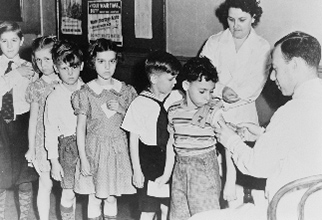
Flu season is around the corner. At this time of year, millions of Americans are asking themselves the same question, “Should I get a flu shot?”
“The answer is yes,” says Dr. Mia Finkelston, MD, who treats patients at LiveHealth Online. “But it’s also important to know what a flu shot does and when it’s the right time to get one.” Dr. Mia also pointed out that there are many misconceptions about the flu shot. So we’re listing 10 of the most common flu facts and myths.
- I don’t need a flu shot. I’m healthy enough. Healthy people still can get the flu. If the germs are on your hands and you touch your T-zone (above eyes or nose) or eat without washing, you are at risk no matter how healthy you are. Your risks also increase with exposure to public places and crowds.
- Insurance doesn’t cover the flu shot. On the contrary, most insurance plans do cover the cost of the flu vaccine. The Affordable Care Act requires health insurers to cover preventive services, like the flu vaccine, at 100%, or at no cost to you. Check with your insurance company.
- The flu shot is good for the entire year. Wrong. It’s actually good for only six months making October an ideal time to get the shot to stay protected throughout the winter. Peak flu months are January and February.
- The flu shot will make me sick. Typically, the only side effect is local swelling and soreness at the injection site. Less common side effects are low-grade fever, muscle aches or a headache. But the shot will not give you the flu. It protects you from it.
- You can only get the flu from kissing someone or sharing a toothbrush. No. There are many ways to be exposed to the flu and being exposed to germs is inevitable. They are everywhere: door knobs, elevator button, grocery carts, public keyboards and light switches. After you touch these items, you can spread the germs if you touch your face, especially the T-zone. Germs love our mucous membranes, the eyes, nose and mouth. Therefore, wash your hands before you eat or touch your face.
- The flu shot hurts. On the contrary, the flu “shot” does not have to involve a needle. The flu shot can be administered via a spray called FluMist. This is an excellent option for individuals (particularly little kids over two) who have a fear of getting a traditional shot.
- Only elderly people need the flu shot. Everyone is at risk for the flu so everyone should get the flu shot. The elderly can get sicker than younger people and should be vigilant about getting a shot when the season begins.
- Antibiotics can get rid of the flu. Antibiotics only treat bacterial infections. The flu is caused by a virus, so antibiotics are of no benefit to flu sufferers.
- It’s too late to get the vaccine after November. No, this is not true. According to the CDC, “It is not too late to get vaccinated, even in January or later. While seasonal flu outbreaks can occur as early as October, flu activity most often peaks in January or later. Since it takes about two weeks after vaccination for antibodies to develop in the body that protect against flu virus infection, it is best that people get vaccinated in time to be protected before flu viruses begin spreading in their community. “
- It’s okay to skip years between vaccinations. This is not a good idea. There is no reason to skip getting a flu shot. The vaccine only lasts six months and each year there are different strains. So why skip? It’s not worth the risk.
If you have any questions about the flu or flu shot, you can always reach a doctor online using LiveHealth Online or download our app at Google Play or the App Store.
Comments and opinions from Dr. Mia Finkelston are hers alone. This is an essay and is not considered medical treatment.
Photo credit: Library of Congress Prints & Photographs
Recommended Posts




